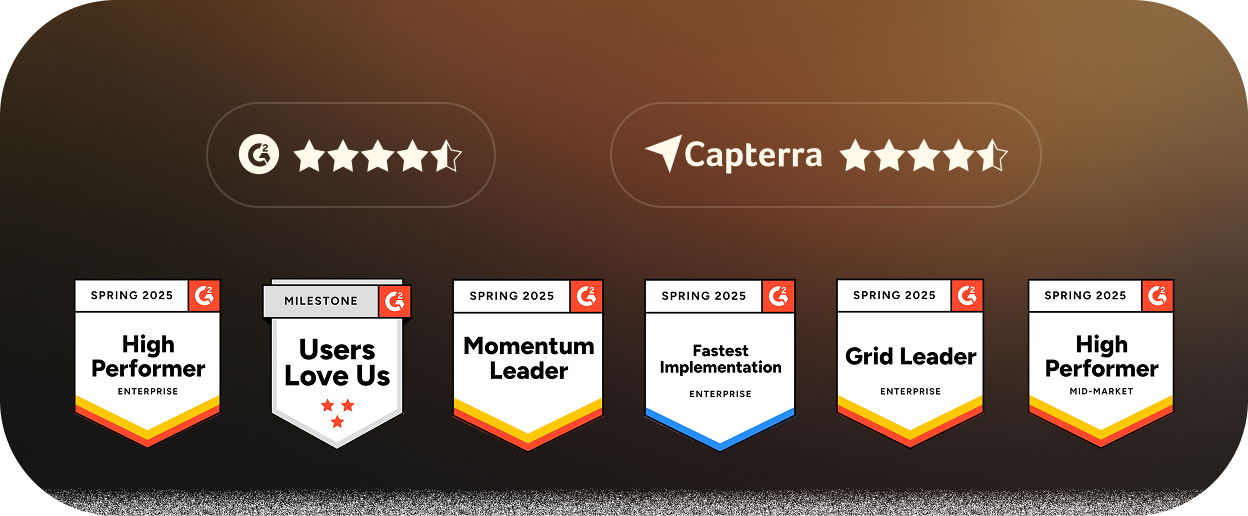
Termini del glossario
Plum - Piattaforma per premi, incentivi e pagamenti
Premi di ruolo
I premi di ruolo rappresentano un approccio ponderato e strategico per riconoscere e apprezzare i dipendenti in base ai loro anni di servizio dedicato all'interno di un'organizzazione.
Vediamo di approfondire il concetto di premio di ruolo, esplorando il suo significato, le varie forme che può assumere e l'impatto che ha sulla motivazione, sulla soddisfazione e sulla fidelizzazione dei dipendenti.
Quali sono i premi di ruolo?
I premi di anzianità sono incentivi o riconoscimenti concessi ai dipendenti in virtù del loro impegno e servizio a lungo termine nell'organizzazione. Questi premi celebrano il raggiungimento di specifici traguardi di permanenza, come anniversari o anni di servizio.
Quali sono i vantaggi dell'offerta di premi di ruolo ai dipendenti?
L'offerta di premi di ruolo può avere un impatto duraturo sia sulla soddisfazione dei dipendenti che sulla crescita dell'organizzazione. Ecco alcuni dei principali vantaggi:
- Aumenta la fidelizzazione: Riconoscere il servizio a lungo termine incoraggia i dipendenti a rimanere più a lungo.
- Migliora il morale: I dipendenti si sentono apprezzati e valorizzati per la loro fedeltà.
- Costruisce una cultura positiva: I premi di ruolo promuovono una cultura di riconoscimento e rispetto.
- Migliora il coinvolgimento: Il riconoscimento regolare dei traguardi di servizio aumenta la soddisfazione sul lavoro.
- Rafforza il marchio del datore di lavoro: Posiziona l'azienda come un luogo di lavoro gratificante e incentrato sulle persone.
Quali tipi di ricompensa sono adatti alle diverse tappe di carriera?
Le diverse tappe di carriera spesso giustificano diversi tipi di ricompense, come ad esempio:
- Certificati di anzianità di servizio:Uncertificato simbolico che riconosce l'impegno del dipendente.
- Bonus monetari:Bonus forfettario aumenti di stipendio a intervalli specifici.
- Giorni di ferie extra:Giorni di ferie supplementaricome ricompensa per un impegno a lungo termine.
- Regali personalizzati:Regali personalizzaticome targhe incise, orologi o altri cimeli.
- Opportunità di sviluppo professionale:Accessoa corsi di formazione o conferenze per una crescita continua.
Come sono strutturati i premi di ruolo?
I premi di ruolo sono tipicamente strutturati in base alla durata del servizio di un dipendente presso un'organizzazione. Le strutture più comuni includono:
- Pietre miliari incrementali:I premivengono erogati a intervalli di tempo predefiniti, ad esempio ogni cinque o dieci anni di servizio.
- Sistemi a livelli:I premipossono essere graduali, con incentivi di valore più elevato per i periodi di permanenza più lunghi per riconoscere la crescente fedeltà.
- Eventi di riconoscimento:Le organizzazionipossono organizzare eventi speciali o cerimonie per riconoscere e premiare pubblicamente i dipendenti che raggiungono traguardi significativi.
Quali sono le migliori pratiche per implementare un programma di premi di ruolo?
Per rendere significativo ed efficace un programma di premi di ruolo, le organizzazioni dovrebbero seguire queste best practice:
- Stabilite delle pietre miliari chiare: Riconoscere gli anniversari di lavoro più importanti, come 1, 3, 5, 10 anni e oltre.
- Personalizzare i premi: Personalizzate i premi in base agli interessi o ai risultati ottenuti dai dipendenti.
- Festeggiare pubblicamente: Riconoscere i traguardi raggiunti nelle riunioni del team o nei canali aziendali.
- Offrite ricompense significative: Scegliete ricompense utili, memorabili o esperienziali.
- Siate coerenti e tempestivi: Consegnate i premi alla data esatta dell'anniversario del servizio o in prossimità di essa.
I premi di ruolo sono tassabili per i dipendenti?
Sì, i premi di locazione sono generalmente considerati reddito imponibile se hanno un valore monetario. Ciò include carte regalo, contanti e merci di valore elevato. I datori di lavoro devono rispettare le normative fiscali locali e potrebbero dover riportare questi premi sui moduli fiscali dei dipendenti.
















